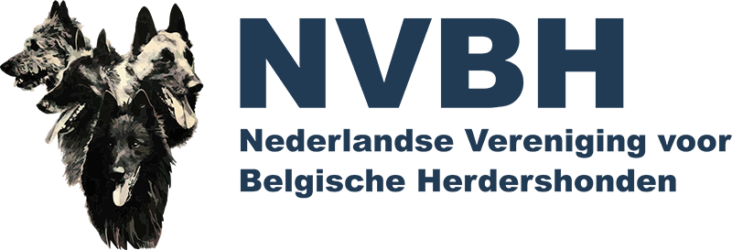Steun het maagkankeronderzoek!
De eerste donaties zijn binnen, dank voor jullie hulp.
The first donations are booked, thank you for your help.
We hopen dat veel mensen zullen volgen en het onderzoek zullen steunen om onze Belg gezond te houden.
Hope that many people will follow and support the study and keep our Belgians healthy.
Bank details zijn:
NL 52 ABNA 0970301391
Dr. P. Mandigers – Gastric Carcinoma Research – De Bilt Netherlands ABN AMRO bank
SWIFT / BIC: ABNANL2A.
You can also donate using paypal. Please use this link: www.paypal.me/PMandigers Thank you for helping us!
Anne-Marie Smolders
Commissie Gezondheid
Maagkanker onderzoek werkgroep
Gastric carcinomas in the Tervueren shepherd and Groenendaelers
An update on the current research unravelling the genetic cause of gastric carcinomas in the Tervueren Shepherd and Groenendaelers.
Sanne Hugen (DVM) and Paul Mandigers (DVM, PhD)
Department of Clinical Sciences of Companion Animals, Faculty of Veterinary Medicine, Utrecht University, PO BOX 80.154, 3508 TD Utrecht, The Netherlands
s.hugen@uu.nl or p.j.j.mandigers@uu.nl
Team members:
Dr. Paul Mandigers (projectleader)
Drs. Sanne Hugen (promovenda)
Dr. Peter Leegwater – geneticist
Dr. Hille Fieten – geneticist
Prof. dr. Jan Willem Hesselink (Promotor)
Introduction
As of 2003 Paul Mandigers has been monitoring the incidence of gastric carcinomas in the Belgian Shepherd. Being the owner of a Malinois and Tervueren Paul started to identify cases and sample them for DNA extraction. In 2012, with the help of the Nederlandse Vereniging voor de Belgische Herder (NVBH) and the charity foundation Dutch Cancer Foundation for Animals (NKFvD), we started a PhD project (with Sanne Hugen, DVM and owner of a Groenendaeler as PhD student) to investigate the genetic cause of gastric carcinoma’s in the Tervueren shepherd and Groenendaeler. In this paper we will try to shed some light on where we are now and what challenges we are facing.
Gastric carcinomas
Stomach cancer is unfortunately a big problem and potential threat to the breed. Based on surveys performed in 2009 and more recently in 2013 we sadly conclude that, despite the current selection, that, the frequency does not drop.1,2 There are two major reasons for this. First of all the disease affects mainly older dogs. Dogs may have been used for breeding while they get affected at older age. This means that we might have used dogs that were affected or closely related to affected dogs. Secondly, the inheritance is complex, making it difficult to predict which dogs are carriers of the cancer genes without expression of the disease. Based on our statistical analyses using the pedigree data from all long-haired Belgian Shepherds (diseased and healthy dogs), we must conclude that there is clearly an inherited component. However we are not looking at a simple monogenetic disorder. Other factors also play a role. And this is problematic as gastric carcinoma, is based on our data, a serious threat for the breed. The identified number of cases is around 2% of the population, but most likely the death rate due to GC is around 4%. And these are only the affected animals. In an earlier study we calculated the heritability grade to be 20%.1 Hence there is room for selection but it might not be easy.
What did we do so far?
We have so far identified over 200, Dutch, cases. From 120 of these dogs we have obtained a full history, DNA, as well as gastric carcinoma tissue. In addition, thanks to the efforts of many volunteers, we have a dataset of over 160 control dogs that were healthy and had no stomach upset.
To gain greater insight into gastric cancer in all its facets we conducted an extensive literature review.2 In this review the knowledge of gastric cancer in humans is taken into account and compared. This provides many insights into possibly relevant aspects of the dog.
When it comes to the genes and genetic factors that are involved we performed last year a genome scan on 48 diseased dogs and 48 controls. We found two chromosome regions of interest that displayed differences in the two groups. We analysed some genes of interest in these two regions but up to now we did not find a significant abnormality. It does not say it isn’t there. A comprehensive DNA sequence analysis of the complete regions is required.
What are we doing now?
We can increase the power of our GWAS by adding another 48 cases and 48 healthy dogs. But we will also do a so-called full genomic sequence analysis of a few highly selected cases and controls. We expect that this type of research will identify the gene variants that increase the risk and help us to develop DNA tests to get away from this disease.
Funding
Research investigation such a difficult disease can only be done if we have to reach this goal funding. The charity foundation NKFvD has supported us generously but that has not been enough. At the moment we need, to complete the study, at least 36.000 euro.
Therefore we send out this cry for help. Please donate. If each Belgian Shepherd owner would donate 20 euro we would be able to complete our study and help this beautiful breed. We have set up a bank account for this project. All the money that will be donated will only be used for the genetic analysis and for nothing else.
The bank account details are:
NL 52 ABNA 0970301391
Dr. P. Mandigers – Gastric Carcinoma Research – De Bilt Netherlands
ABN AMRO bank
SWIFT / BIC: ABNANL2A.
You can also donate using paypal. Please use this link: www.paypal.me/PMandigers
Thank you for helping us! If you have any question just email us.
Literature
- Lubbes D, Mandigers PJ, Heuven HC, et al. [Incidence of gastric carcinoma in Dutch Tervueren shepherd dogs born between 1991 and 2002]. Tijdschrift voor diergeneeskunde 2009;134:606-610.
- Hugen S, Thomas RE, German AJ, Burgener, IA and Mandigers PJJ. Gastric carcinoma in canines and humans, a review. Vet Comp Oncol 2016. August.
